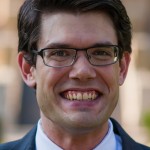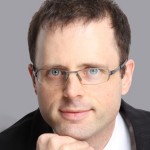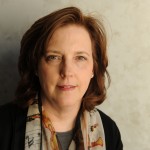Karl Rahner Consultation
“Ecology: Theological Investigations” was the theme of the seventy-second annual convention of the Catholic Theological Society of America, held at the Hyatt Regency Albuquerque from June 8-11, 2017. The Karl Rahner Society had invited Michael Rubbleke (University of Notre Dame) and Jean-Pierre Fortin (Loyola University of Chicago) to present papers on the convention theme.
In his paper entitled “Christ, Creation’s Center; Humans, Creation’s Microcosm: Reading Rahner’s Evolutionary Christology with Bonaventure,” Michael Rubbelke brought Karl Rahner into dialogue with a central figure of medieval theology. At the heart of Rubbleke’s presentation was the issue of humanity’s place in the created order. Rubbleke outlined Bonaventure’s conviction that human nature represents the unity of creation: humanity as the microcosm of creation’s macrocosm, all of which is redeemed in Christ. For Bonaventure, “body and soul” captured the unity of seemingly opposed elements of the cosmos. Moving on to Rahner, Rubbelke showed that Rahner’s understanding of the relationship of spirit to matter was dynamic: Rahner’s evolutionary view depicted matter as capable of transcendence; human beings alone, however, were able to transcend toward God. In Rahner’s theology, human beings were uniquely able to “read” creation in relation to the creator; in human beings, therefore, creation came into consciousness of itself, a conscious inseparable from God’s revelation in Christ. It was Christ, then, who was the source of unity in creation. For that reason, as Rubbelke argued, Rahner saw all of creation as ordered towards incarnation. The uniqueness of humanity in creation must be distinguished, Rubbelke stressed, from a license to damage the physical world. For Rahner, as for Rubbelke, the destruction of the environment leads to the destruction of humanity.
Jean-Pierre Fortin, whose paper was entitled “Self-Transcendence and Union in Christ: Karl Rahner’s Eucharistic Theology of Creation,” began with a reflection on Pope Francis’s Laudato Si’. Fortin argued that the pope’s “integral ecology” summarizes the encyclical’s focus on the interdependence of all aspects of creation. From there, Fortin, tracing the development of Rahner’s thought through the latter’s engagement with Aquinas, Kant, and Heidegger, highlighted Rahner’s conviction that in human beings the universe has become self-aware. Paralleling Rubbelke’s presentation, Fortin showcased the centrality of Christ in Rahner’s theology: in Christ the divine enters the human, and the human the divine. The grace of Christ empowers human transcendence, but humans are free to accept or reject that grace. In the second half of his presentation, Fortin brought Rahner into dialogue with the work of Charles Darwin, showing that Rahner’s emphasis on the role of the Holy Spirit expanded Darwin’s exclusively naturalistic approach to evolution. It is through grace, Fortin contended, that creation is elevated and able to receive God’s self-offering. The final section of Fortin’s paper explored the connection between Rahner’s theology of grace and his sacramental theology, presenting the church and the seven ecclesial sacraments, particularly the Eucharist, as contributing to humanity’s “spiritual maturation.” Such maturation can lead to a deeper relationship to the natural world, which is to be nurtured and protected as the site of God’s self-revelation in Christ.
Nancy Dallavalle, in responding to the two presentations, questioned whether Rubbelke’s analysis issued in an anthropocentric approach to creation; a critique, Dallavalle noted, often directed to Rahner’s stress on theology as anthropology. In addressing Fortin’s paper, Dallavalle focused on Rahner’s concentration on humanity as the highpoint of creation, asking whether Rahner does justice to the reality of suffering and human sinfulness. The final section of Dallavalle’s response introduced the work of Linn Tonstad, who asks whether Rahner’s trinitarian theology is problematic in its emphasis on God’s action in the world as the key to resolving all human challenges. From there, Dallavalle drew a comparison with Pope Francis’s use of “integral ecology,” asking whether, like the invocation of the Trinity, it is in danger of being called upon as a solution to every problem in contemporary society, but without providing any specificity. Dallavalle’s naming of the specter of “anthropocentrism” in Rahner’s theology sets the scene for an animated period of questions after the presentations and response. The presentations and discussion confirmed Rahner’s enduring value as a source for environmental theology, but also identified challenges facing his theology. (Summary by Richard Lennan, Boston College.)


